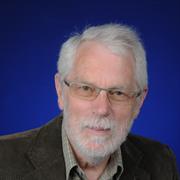Energy Informatics Group
Mark Apperley, Bill Rogers.
Energy Informatics concerns the application of information technologies to improve the efficiency and effectiveness of energy utilisation, from source, through distribution, to consumption. The research of the Energy Informatics group includes (i) maximising the utilisation of energy when and where it is available, (ii) energy conservation – that is ensuring that energy is not used wastefully or unnecessarily, and (iii) end-use efficiency – ensuring that the energy we do use is used effectively. At present the focus of this research is on: electricity demand-side load management and storage mechanisms, which provide a means of improving the integration of renewable energy sources such as wind and tide; smart homes, which involves the integration of these technologies in the home; electric vehicles as an alternative to fossil fuel usage, and as a potential means of providing storage on the electricity grid; and mitigation of energy expended on personal transport.
This research is aligned with New Zealand's energy strategy, to achieve a level of 90% of electricity generated from renewables by 2025. This goal requires better utilisation of existing and new renewable generation sources, particularly wind, solar and tidal/wave, all of which are highly variable in their output, as well as improved efficiency and load management at the consumption end in the face of increasing quality of life expectations and population growth. A further factor influencing the work of this group is New Zealand's goal to reduce greenhouse gas emissions to 80% of 1990 levels by 2020. Electricity generation produces about 19% of the country's greenhouse gases, emphasising the need for more effective utilisation of renewable electricity sources, but transport accounts for 44%, providing another research focus on the impact and integration of electric vehicles on the transport fleet, as well as improved video conference and virtual presence systems to counter the ever-growing trends of personal travel.

Professor, Research Associate